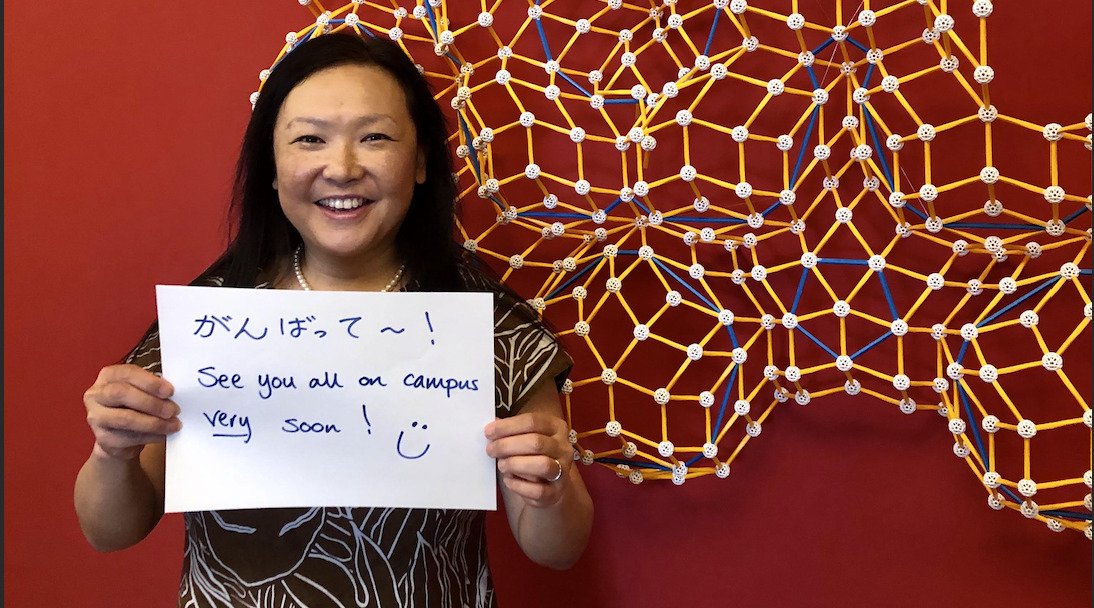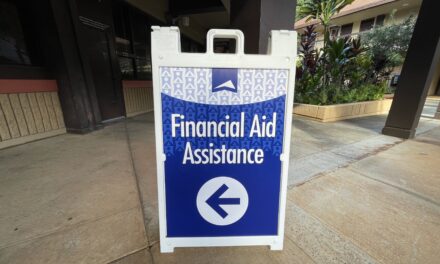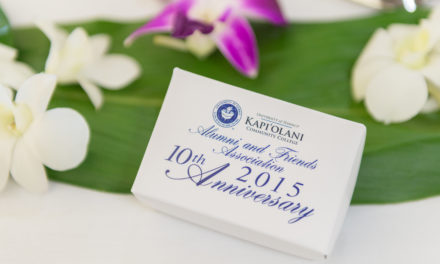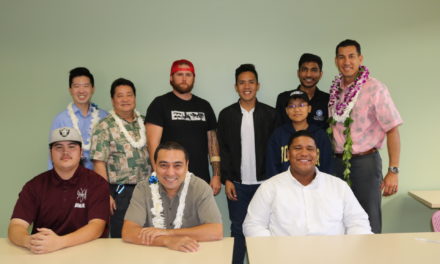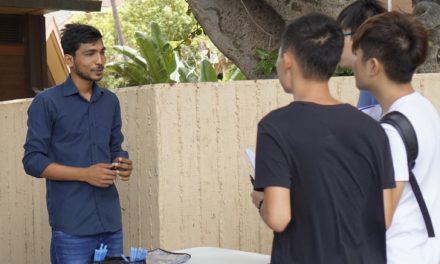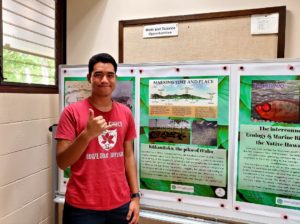“I think I’m in education because I truly enjoy seeing people transform. That really gets me going,” said Misaki Takabayashi during a Q&A with Kapiʻo News before she starts as KCC’s chancellor. (Photo courtesy of Misaki Takabayashi)
By Cameron Enomoto and Shawna Takaki | Staff Writers
On February 6, Kapiʻo News staff writers had the opportunity to interview Misaki Takabyashi, the new chancellor at KCC. Takabayshi moved to Oʻahu in mid-February with her partner and was in the process of finalizing shipping details and saying goodbye to family in Okinawa during the time of the interivew. Takabayashi sat by the poolside at a hotel near Tokyo in 40-degree weather while answering questions about her new role starting Wednesday.
Enomoto: How is the process of moving to Hawaiʻi going for you?
Takabayashi: It’s going well. It is a significant step forward for me. Just the process of packing up the entire house and shipping things has been a handful. I have an 85-year-old, soon-to-be 86-year-old mother over here in Japan. Saying goodbye and making sure she is set up here has been hitting on the fact that I have made a significant decision and commitment to Oʻahu. It is truly exciting, and I am feeling the weight of it all.
Enomoto: Are you nervous about assuming the role of KCC’s new chancellor?
Takabayashi: I’m not nervous, it’s more good energy and excitement energy. If you were to define nervousness as a fear, I don’t feel that. It’s more anticipation of course, but more of a “here we go,” you know. I want to get to know everybody.
Takaki: What are you most excited for as you assume your position?
Takabayashi: I was at UH Hilo for a long time. [It’s] a four-year campus and predominantly [has] undergraduate students. I have spent the last four years at a graduate university, Ph.D. only. One of the reasons why I wanted to be part of a community college is because I wanted to get closer to where students, a place of high education, and the community met more intimately. I am most excited about going back to that. I think I’m in education because I truly enjoy seeing people transform. That really gets me going.
Enomoto: That’s awesome. I love how passionate you are about education, and we are all excited to welcome you to campus.
Takaki: Yeah, on that note, where will you be living on the island?
Takabayashi: Very near the campus. I will be part of the community that Kapiʻolani is being supported by. As far as Hawaiʻi goes, I’m a Hilo girl. I am afraid of the traffic on Oʻahu. I didn’t want to drive to go to campus every day so I am within a walking distance.
Enomoto: I understand that since traffic can get pretty bad sometimes. Though as you get situated here, I was wondering, what is on your priority list of issues to tackle?
Takabayashi: That is a good question, though before I can answer that question I need to understand what the issues are. That is my priority. I have begun meeting with leaders on campus and I know the general campus strategic planning, but I need to be able to lead in my own way. I need to understand the lay of the land so to speak and what people on campus are feeling. From what I hear, perhaps creating chances for us to get back together on campus and feel like a community. We had to do what we had to do to go remote during the pandemic, but I think it might be time to come together again. I will lean on you folks, student leaders, to think about how we can do that. I know we don’t want to force anything that makes people uncomfortable, but it would be nice to bring food back on campus, bring events back, and ourselves.
Takaki: Relating to the idea of learning about KCC, what do you anticipate being a big learning curve?
Takabayashi: Everything. Of course, I am coming from outside KCC, but at the same time, the world has changed significantly. The way people want to learn, what they want to learn, and how they want to learn has changed. What society is demanding of the learners coming out of college and the opportunities that are out there are like a big washing machine of changes. Even if I had been at KCC for a long time, this is an era of huge change and new opportunities. It’s you folks who can tell us what you want to get out of the college experience. It’s not a one-way thing where professors are just teaching what they know to you and that’s the end of it. It’s you transforming yourself. So it’s how KCC can be a catalyst to that growth, to that transformation, and then to connect you to new opportunities beyond college. I am looking forward to learning and creating with you folks.
Enomoto: Building off of that, I was wondering if you could tell us your teaching philosophy or what your vision for KCC is.
Takabayashi: When I was teaching at UH Hilo, I was fortunate enough to have been given the opportunity to go through faculty professional development provided by UH Hilo’s Native Hawaiian Student Center, Kīpuka. This exposed non-Hawaiians to how the world views of native Hawaiʻi were. The product of my experience was a course I created called Kuʻula: Integrated Science. I am not Native Hawaiian, though I was a natural science expert. For that course, I would drive a bus full of students to places that taught us, including myself. There were places with practitioners and people who took care of natural resources, and that model of learning together and from experiences is powerful. I see the impact of that in years beyond. That was about 10 years ago, and now I see more than a dozen of my former students standing on this stage for an international conference on indigenous resource management. My students are now in decision-making positions for agencies in Hawaiʻi and across the Pacific. That is just so great that life-changing experiences can help people discover what they want to do. I see the power in learning from the place that sustains us, wherever that might be.
Takaki: As we close the Q&A, is there a message you would like to share with students and staff at KCC?
Takabayashi: It is a time of great change, though look where your feet are and where you’re standing. Trust in the foundation from which you came and all of the experiences, people, and support that have helped you stand. Our job as a learner is to be open to opportunities and to learn even if it is something that makes us feel uncomfortable. It might be something new or different, whatever it is, let’s stay open and one day it’ll hit you. Trust that you’re at Kapi‘olani because you’re meant to be there. Try to get in touch with yourself and find out who you are. The world is your oyster, literally.

